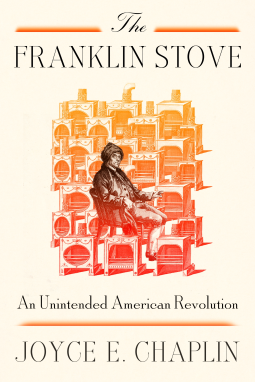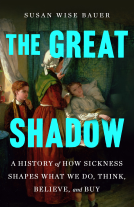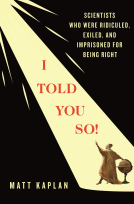
The Franklin Stove
An Unintended American Revolution
by Joyce E. Chaplin
This title was previously available on NetGalley and is now archived.
Send NetGalley books directly to your Kindle or Kindle app
1
To read on a Kindle or Kindle app, please add kindle@netgalley.com as an approved email address to receive files in your Amazon account. Click here for step-by-step instructions.
2
Also find your Kindle email address within your Amazon account, and enter it here.
Pub Date Mar 11 2025 | Archive Date Apr 11 2025
Description
A Washington Post Noteworthy Book
One of The New Yorker's Best Books of the Year So Far
“[A] richly textured history . . . This story holds numerous lessons for our era.” —The New Yorker
“From Joyce Chaplin’s engaging, wide-ranging pages a fresh Franklin emerges.” —Stacy Schiff, Pulitzer Prize–winning author of The Revolutionary
“A fascinating, innovative, inventive look at a fascinating, innovative man and his inventions.” —Charles C. Mann, bestselling author of The Wizard and the Prophet and 1491
The surprising story of Benjamin Franklin’s most famous invention—and a new take on the Founding Father we thought we knew.
The biggest revolution in Benjamin Franklin’s lifetime was made to fit in a fireplace. Assembled from iron plates like a piece of flatpack furniture, the Franklin stove became one of the era’s most iconic consumer products, spreading from Pennsylvania to England, Italy, and beyond. It was more than just a material object, however—it was also a hypothesis. Franklin was proposing that, armed with science, he could invent his way out of a climate crisis: a period of global cooling known as the Little Ice Age, when unusually bitter winters sometimes brought life to a standstill. He believed that his stove could provide snug indoor comfort despite another, related crisis: a shortage of wood caused by widespread deforestation. And he conceived of his invention as equal parts appliance and scientific instrument—a device that, by modifying how heat and air moved through indoor spaces, might reveal the workings of the atmosphere outside and explain why it seemed to be changing. With his stove, Franklin became America’s first climate scientist.
Joyce E. Chaplin’s The Franklin Stove is the story of this singular invention, and a revelatory new look at the Founding Father we thought we knew. We follow Franklin as he promotes his stove in Britain and France, while corresponding with the various experimenters who discovered the key gases in Earth's atmosphere, invented steam engines, and tried to clean up sooty urban air. During his travels back and forth across the Atlantic, we witness him taking measurements of the gulf stream and observing the cooling effect of volcanic ash from Iceland. And back in Philadelphia, we watch him hawk his invention while sparring with proponents of the popular theory that clearcutting forests would lead to warmer winters by reducing the amount of shade cover on the surface of the Earth. As the story of the Franklin stove shows, it’s not so easy to engineer our way out of a climate crisis; with this book, Chaplin reveals how that challenge is as old as the United States itself.
A Note From the Publisher
Advance Praise
"In a world beset by disastrous climate change and dwindling natural resources, a self-made inventor launches a technical fix. The story sounds familiar—but isn't. The time is the mid-1700s, the climate is in period of global cooling called the Little Ice Age, the resource is wood—and the inventor is Benjamin Franklin. By creating the Franklin Stove, as Joyce Chaplin shows, Franklin became a prominent part of humankind's first society-wide effort to combat the effects of climate change. The Franklin Stove is a fascinating, innovative, inventive look at a fascinating, innovative man and his inventions." —Charles C. Mann, bestselling author of The Wizard and the Prophet and 1491
"It isn’t difficult to connect Ben Franklin to the modern world. Joyce E. Chaplin charts an especially original route, probing Franklin's work on the stoves he spent half a lifetime inventing and reinventing, stoves that introduced a host of questions. Would clearing forests warm the earth? Was coal the future? What did population growth mean for the allocation of resources? From Chaplin's engaging, wide-ranging pages a fresh Franklin emerges, this one an 18th century aficionado of energy efficiency." —Stacy Schiff, Pulitzer Prize–winning author of The Revolutionary and A Great Improvisation: Franklin, France, and the Birth of America
"Through the prism of an object, Benjamin Franklin's eponymous stove, Joyce Chaplin presents a kaleidoscopic picture of North America during the Little Ice Age, when technologies of heating created an ecological battlefront between white settlers and Native Americans, each with their own starkly contrasting ideas about the environment. The Franklin Stove is a stellar example of how history should be written in this era of planetary crisis, in the wake of the collapse of earlier teleologies of progress." —Amitav Ghosh, author of Smoke and Ashes and The Nutmeg's Curse
"The very best histories remind us of how different people were back in the past—and yet how relevant their lives might be to our own. Gifted historian Joyce Chaplin does exactly that, positioning Benjamin Franklin and his circle in an eerily familiar moment of climate crisis, scientific experimentation, technological innovation, energy transition, and political upheaval. The Franklin Stove offers a stunning tidbit on every page, a brilliant interpretation in every chapter, and so threads together an epochal tale for our times." —Philip J. Deloria, Leverett Saltonstall Professor of History at Harvard University
"By exploring the origins and impact of an eighteenth-century invention, a more efficient wood-burning stove, Joyce Chaplin pursues the largest of stakes. The author reveals how technology compounds our environmental plight by promising a misleading liberation from natural limits—and by obscuring and replicating social injustices. Profound as analysis and vivid in writing, The Franklin Stove brilliantly illuminates the historical roots of our current environmental and social crises." —Alan Taylor, Pulitzer Prize–winning author of American Civil Wars: A Continental History, 1850–1873
"Joyce Chaplin is not only the most authoritative but also the most creative historian of early American science—and of Benjamin Franklin. Here she uncovers Franklin’s most revolutionary and yet overlooked insight: that there would be a profound collision between the earth’s climate and humanity's exploitation of natural resources. Trying to warm his hands and toes by a more efficient fire, Franklin was also looking to the essence of his scientific interests in the atmosphere, electricity, fire, and energy itself. While there is a 'Poor Richard' quote for pretty much everything, the techno-optimism that Franklin and his era launched into our own may defy pithy aphorisms, except this one: history instructs. The Franklin Stove is a sharp, clever, and humane book." —Karin Wulf, professor of history at Brown University
Available Editions
| EDITION | Other Format |
| ISBN | 9780374613808 |
| PRICE | $32.00 (USD) |
| PAGES | 432 |
















